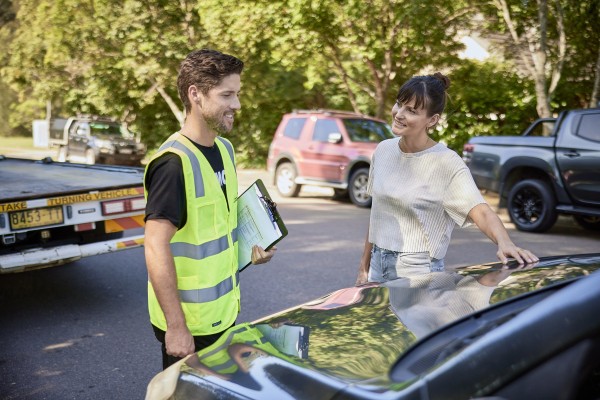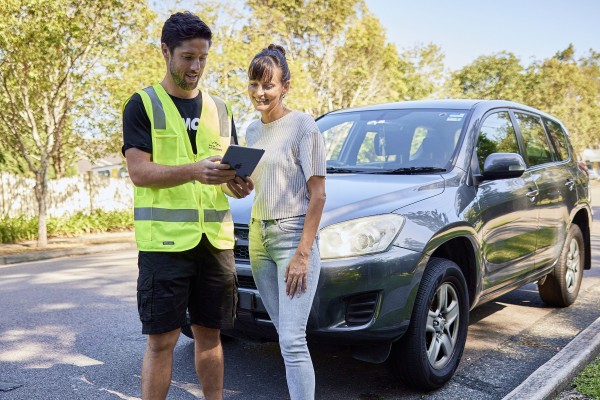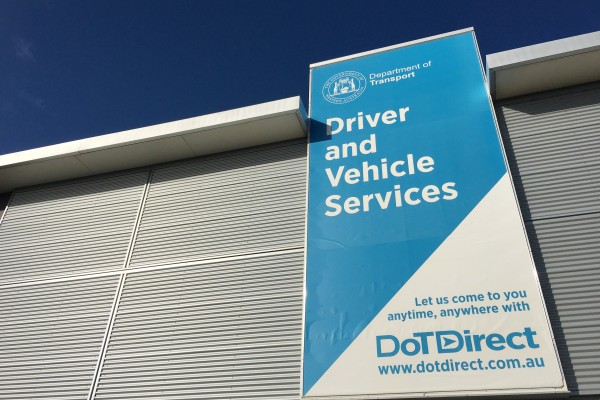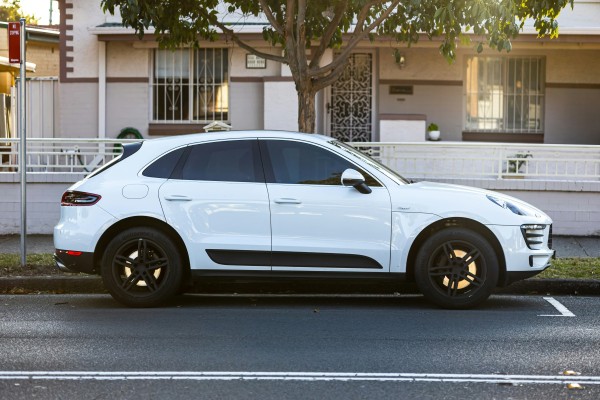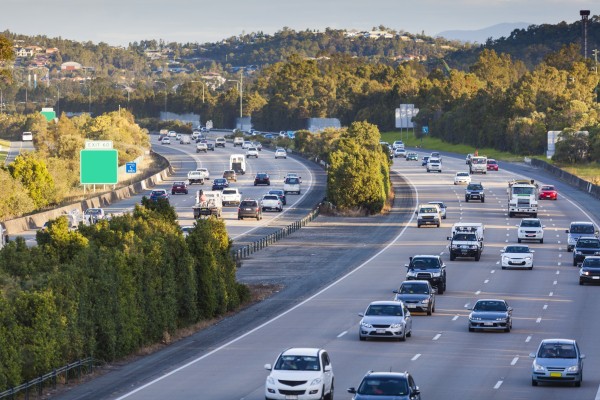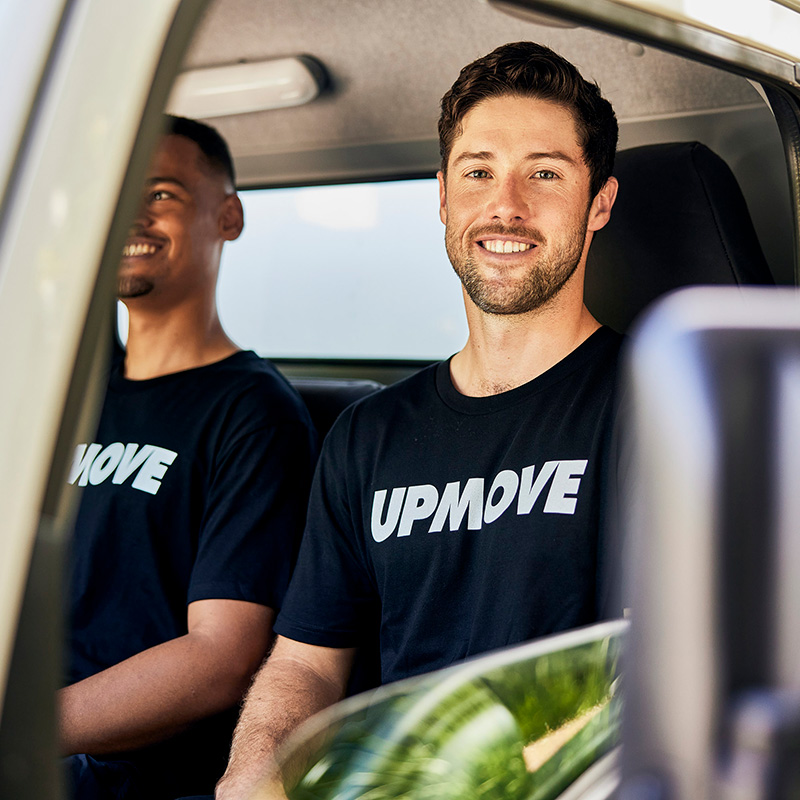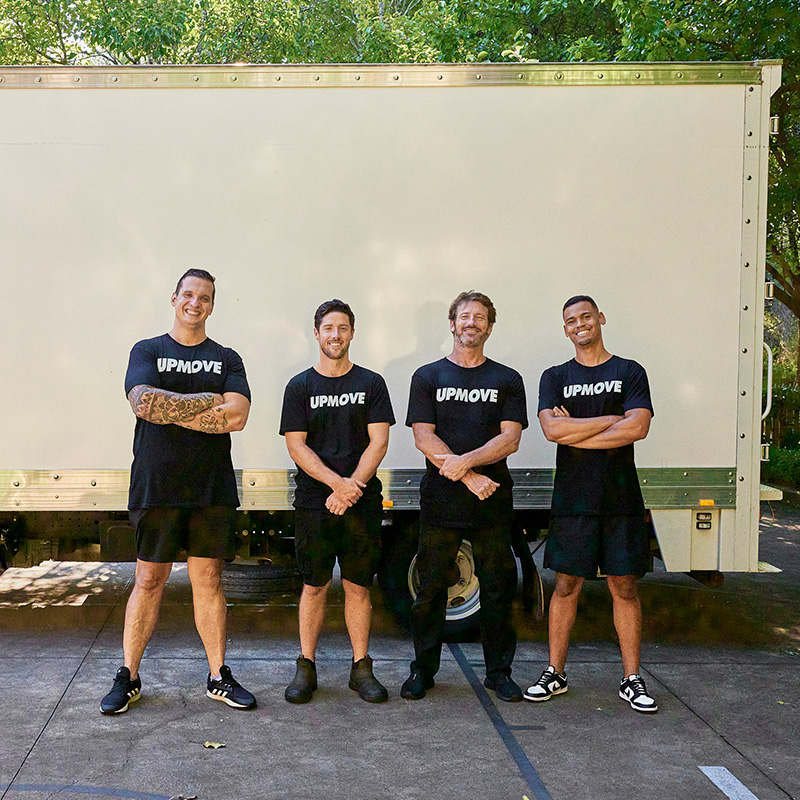Car Towing in Australia: A Comprehensive Guide
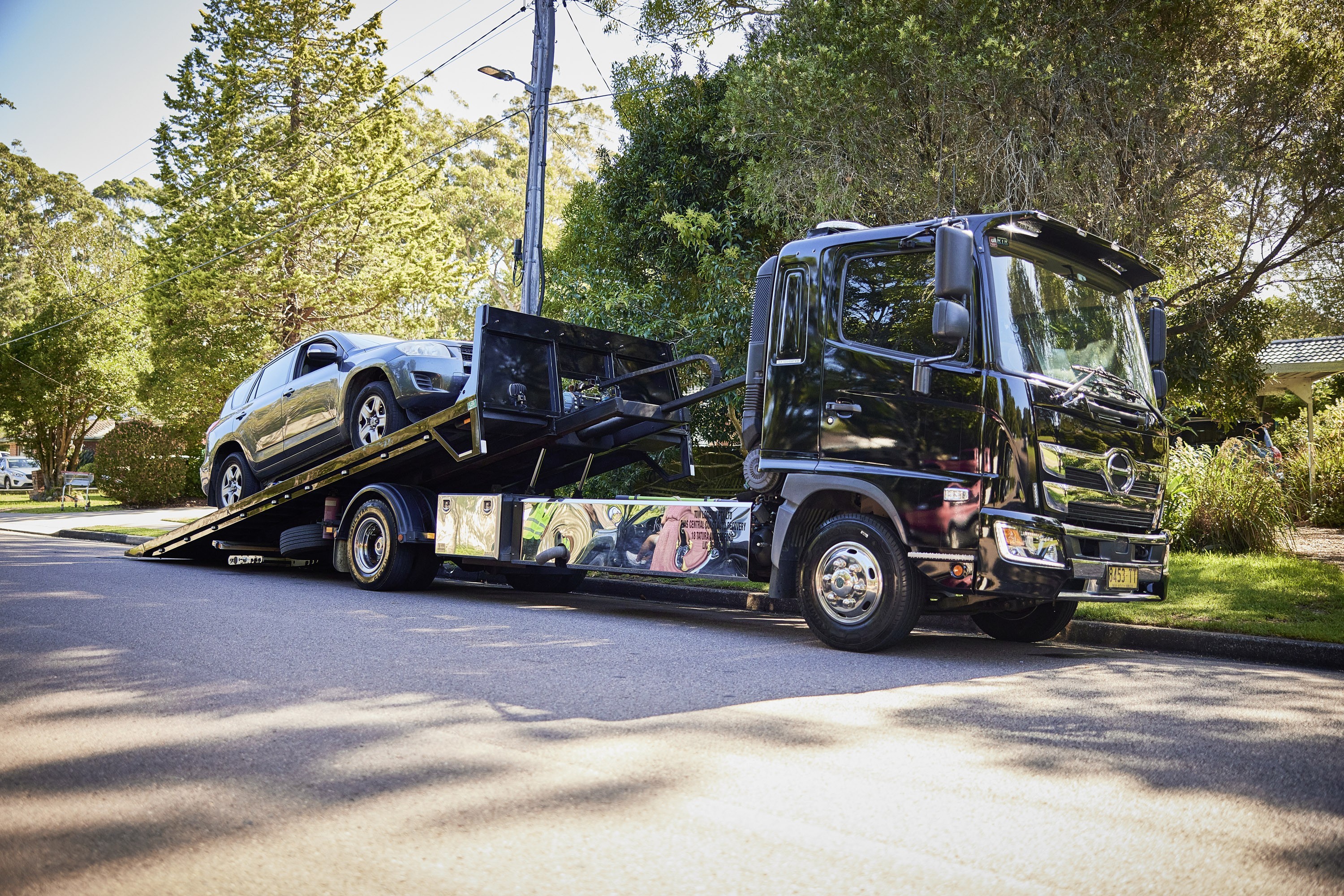
Car towing is a common necessity in Australia, serving a multitude of purposes, from roadside breakdowns to vehicle relocations interstate. Understanding the ins and outs of car towing is essential for every driver. This guide addresses questions like what car towing is, why it's required, and the associated costs.
We discuss the legal aspects of towing, how far towing companies are willing to transport your vehicle and we explore the safety considerations of different towing methods. Additionally, we touch on speed limits while towing and offer practical tips for a hassle-free towing experience, ensuring you're well-prepared for any situation.
What is Car Towing?
Car towing involves the transportation of a disabled or immobile vehicle from one location to another using another vehicle, typically a tow truck. This process is employed when a car cannot be operated safely due to mechanical failures, accidents, or legal issues.
Car towing serves a variety of purposes, ranging from rescuing stranded motorists to relocating vehicles to repair shops or impound lots. It's a critical service that provides assistance and convenience to drivers facing unexpected vehicular challenges.
Why Do Cars Need to Be Towed?
Cars require towing for a variety of reasons. 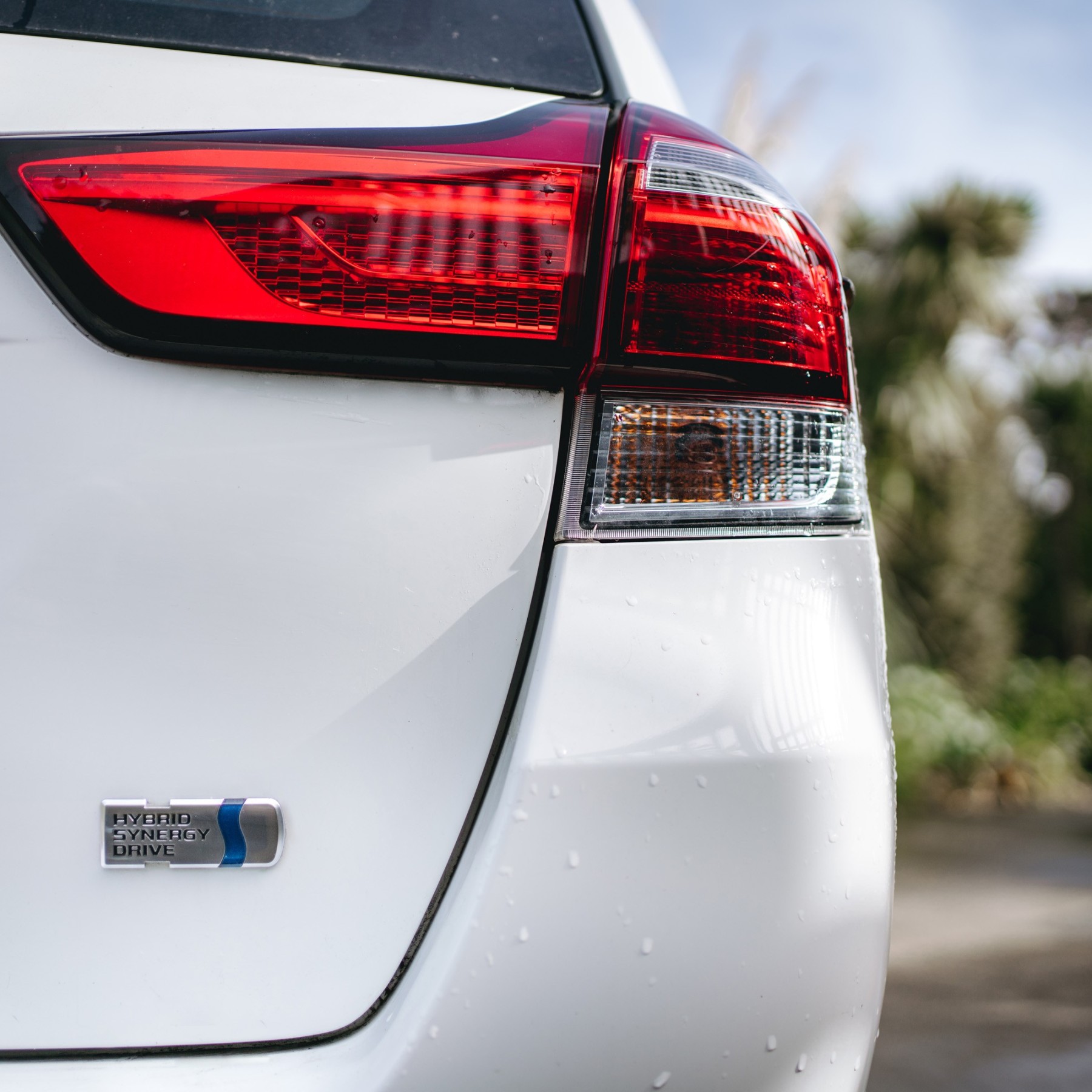
- Breakdowns and Mechanical Issues: One of the most common reasons for car towing is a vehicle breakdown or mechanical failure. When your car refuses to start, overheats, or suffers a flat tire far from a repair facility, towing becomes a lifeline.
- Accidents and Collisions: After a car accident, towing is often necessary to remove damaged vehicles from the scene, ensuring the safety of all parties involved and clearing the roadway.
- Out of Fuel: Running out of fuel can leave you stranded on the side of the road. Towing can transport your vehicle to the nearest service station.
- Illegal Parking: Vehicles parked illegally or in restricted zones can be towed away by authorities, often leading to impoundment and fines for the owner.
- Vehicle Repossession: When borrowers default on their auto loans, lending institutions may repossess the vehicle through towing.
- Flat Tires: In cases where a spare tire isn't available or suitable, towing can transport the vehicle to a repair shop.
- Junk or Abandoned Cars: Abandoned or inoperable vehicles may be towed away to clear public spaces or private properties.
- Long-Distance Transport: Sometimes, people need to move a car a significant distance without driving it, which requires specialised towing services.
In each of these situations, car towing ensures vehicles are moved safely and efficiently, preventing further damage or inconvenience to the owners and other road users.
How Much Does It Cost to Tow a Car in Australia?
The cost of towing a car can vary widely depending on several factors.
- Distance: The distance your car needs to be towed is a significant factor. Short-distance tows within a city or town will generally cost less than long-distance intercity or interstate tows.
- Location: Towing rates can differ between urban and rural areas. Remote or less accessible locations may incur higher costs due to travel time and logistics.
- Towing Company: Different towing companies have varying pricing structures. It's wise to obtain quotes from multiple providers to find the best deal.
- Type of Vehicle: The size and weight of your vehicle also impact the cost. Larger or heavier vehicles typically require more robust equipment and may cost more to tow.
- Time of Day: Emergency or after-hours towing may come with higher fees.
- Additional Services: If you need extra services like roadside assistance or winching, expect to pay extra.
On average, you can anticipate a basic short-distance tow to cost between $100 to $200, while long-distance or specialised tows can range from $200 to several hundred dollars. Always request a quote and clarify the charges with the towing company to avoid surprises and ensure transparency in pricing.
Is It Legal to Tow a Car in Australia?
Towing a car in Australia is legal, but it must be done in compliance with specific regulations and requirements. Here's what you need to know.
- Licensed Operators: Towing services in Australia must be provided by licensed operators. Ensure the towing company you choose is authorised and adheres to local and state regulations.
- Proper Equipment: Towing vehicles must be equipped with the necessary safety gear and signage, including warning lights, reflectors, and signage indicating "Towing In Progress."
- Securely Fastened: The towed vehicle must be securely fastened to the towing vehicle using appropriate equipment like tow bars, chains, or straps.
- Maximum Speed Limits: When towing a car, obey the designated speed limits, which may be lower than regular speed limits.
- Safety Standards: Follow safety guidelines to protect yourself, your vehicle, and other road users during towing.
- Insurance: Ensure your towing company has insurance cover to protect against potential damages during the towing process.
Non-compliance can lead to fines, penalties, and potential liabilities in the event of accidents or damage during towing.
How Far Will Towing Companies Tow My Car?
The distance towing companies will transport your car in Australia can vary based on several factors.
- Local Towing: For breakdowns or short-distance tows within a city or town, most towing companies offer local towing services. These typically cover distances of up to 50 kilometres.
- Interstate Towing: If you need to transport your vehicle between different states or over long distances, you'll require an interstate towing service. These can cover hundreds or even thousands of kilometres, depending on your destination.
- Specialised Towing: Some towing companies specialize in long-distance or cross-country towing, offering services for extensive journeys.
The maximum distance a towing company will tow your car also depends on their capabilities and equipment. Always discuss the distance and destination with the towing company beforehand to ensure they can accommodate your needs.
Can You Tow a Car with a Rope in Australia?
Towing a car with a rope, also known as "rope towing" or "tow roping," is generally allowed, but it comes with strict conditions: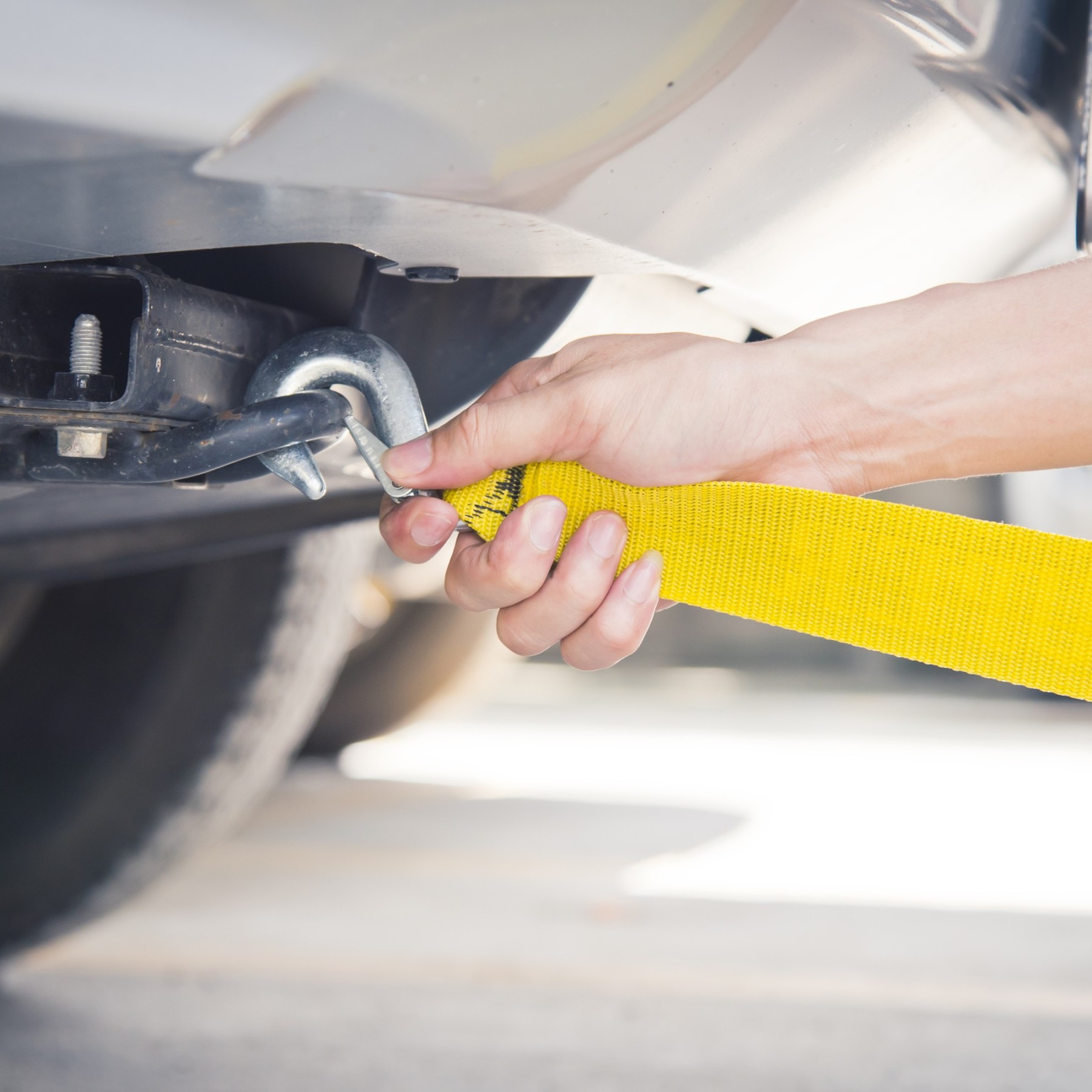
- Distance and Speed: Rope towing is usually limited to short distances and low speeds. Specific speed limits may apply, and they are typically lower than regular road speed limits.
- Safety Requirements: Both vehicles involved must have proper towing equipment, including a sturdy tow rope or strap and appropriate safety flags or markers.
- Driver Competency: Only competent drivers should attempt rope towing, as it requires skill to maintain safe distances and speeds.
- Legal Requirements: Be aware of state and local regulations, as rules regarding rope towing may vary.
While rope towing is allowed for short, emergency situations, it's generally recommended to use a proper towing service with a tow truck or trailer for safety and legal compliance, especially for longer distances or more complex towing needs.
What Should Be Used to Tow a Car Safely?
Towing a car safely requires the use of appropriate equipment and adherence to safety guidelines.
- Tow Bars or Tow Dollies: Tow bars are ideal for towing a car, ensuring stability and control. Tow dollies are another option for front-wheel-drive vehicles, lifting the front wheels while keeping the rear wheels on the ground.
- Tow Straps or Chains: For rope towing, use high-quality tow straps or chains designed for the purpose. They should have sufficient strength and be in good condition.
- Safety Flags and Markers: When towing, display warning flags or markers on both vehicles to alert other drivers to the towed load.
- Proper Hitch: Ensure that the hitch on the towing vehicle is compatible with the towing equipment and properly secured.
- Working Lights: Functional brake lights and turn signals on the towed vehicle are essential for safe towing, usually achieved with a light bar or wiring harness.
- Driver Skill: Only competent drivers should operate towing equipment to maintain safe speeds and distances.
Always follow manufacturer recommendations, adhere to local regulations, and prioritise safety when choosing and using towing equipment in Australia.
Can You Flat Tow a Car in Australia?
Flat towing is a method of towing a vehicle behind another vehicle with all four wheels on the ground. This is legal, but subject to specific conditions and considerations.
- Vehicle Compatibility: Not all cars can be flat towed. Generally, front-wheel-drive vehicles with manual transmissions or those with a tow mode in the automatic transmission can be flat towed more easily.
- Speed Limits: Pay attention to speed limits while flat towing, which are typically lower than regular road speed limits.
- Safety Precautions: Ensure the towed car's steering is unlocked and follow manufacturer guidelines for disconnecting the driveshaft or transmission (if necessary).
- Tow Bar or Tow Dolly: Use a reliable tow bar or tow dolly designed for flat towing to maintain stability and control.
- Legal Requirements: Always comply with state and local regulations regarding flat towing.
Flat towing can be a convenient way to transport a vehicle, but it's crucial to research vehicle-specific guidelines and adhere to safety and legal requirements when considering this method.
What is the Speed Limit When Towing a Car in Australia?
The speed limit when towing a car can vary depending on your location and the type of road. However, there are some general guidelines to keep in mind:
- Urban Areas: In most urban areas, the speed limit when towing a car is typically 50 kilometres per hour unless otherwise posted.
- Rural Areas: On rural roads, the speed limit while towing is usually 100 km/h unless signs indicate a different limit.
- Highways: On highways, the speed limit is commonly 100 km/h when towing, again unless posted differently.
- Specific Regulations: Some states and territories may have their own regulations, so it's essential to be aware of local speed limits.
Always adhere to posted speed limits and adjust your driving speed according to road conditions and the capabilities of your towing setup to ensure a safe and legal journey.
Conclusion
Towing a car is a common necessity, whether due to breakdowns, accidents, or vehicle relocations. In this comprehensive guide, we explored crucial aspects of car towing in Australia.
We've covered why cars need towing, factors affecting towing costs, and the legal and safety considerations. From short distance to long-distance tows, understanding the capabilities of towing companies and the right equipment is vital.
While rope towing is allowed, it's generally recommended to use proper towing equipment for safety and compliance. Additionally, flat towing is possible but subject to vehicle compatibility and regulatory requirements.
If you need to have your car towed, it doesn’t have to break the bank. Upmove is Australia’s premier moving platform. We obtain towing quotes from multiple service providers, so you can be sure you’ll get the best service at the best price.
Our teams will treat your vehicle like their own, and we’ll transport your car door-to-door for a competitive fixed price. Contact us today to learn more.
Frequently Asked Questions
How much does it cost to tow a car in Sydney?
Towing costs in Sydney can vary widely, depending on factors like distance and services needed. On average, expect to pay between $100 to $200 for local tows within the city.
Is it legal to tow a car in WA?
Yes, it's legal to tow a car in Western Australia as long as you adhere to state and local regulations, use proper equipment, and follow safety guidelines.
Can you legally tow a car in NSW?
Yes, car towing is legal in New South Wales. Towing companies must be licensed and comply with state regulations.
How much does it cost to tow a car in Victoria?
Towing costs in Victoria can vary, but expect to pay similar rates as in Sydney, ranging from $100 to $200 for local tows.
How much does towing a car cost in NSW?
Towing costs in NSW follow a similar range as other Australian cities, averaging between $100 to $200 for local tows.
How far will towing companies tow my car?
Towing distances vary by towing company. Short-distance local tows typically cover up to 50 kilometres, while long-distance or interstate tows can span hundreds of kilometres.
Can you tow a car with a rope?
Yes, you can tow a car with a rope in Australia, but it's subject to specific conditions and safety requirements, such as proper equipment and speed limits.
Can you flat tow a car in Australia?
Yes, flat towing is possible in Australia, but it depends on the vehicle's compatibility and adherence to safety and regulatory standards.
What is the speed limit when towing in NSW?
Speed limits when towing in New South Wales are typically 100 kilometres per hour on highways unless otherwise posted.
How much does it cost to get a car towed in Australia?
Towing costs across Australia vary based on location, distance, and services required. On average, local tows range from $100 to $200, while long-distance tows can cost more.
Is flat towing illegal in Victoria?
Flat towing is generally legal in Victoria as long as it complies with vehicle compatibility and safety regulations.
How much is the towing fee in QLD?
Towing fees in Queensland can differ based on location and services needed. Expect to pay similar rates as in other Australian states, with averages ranging from $100 to $200 for local tows.
What do our customers say?

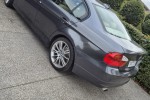

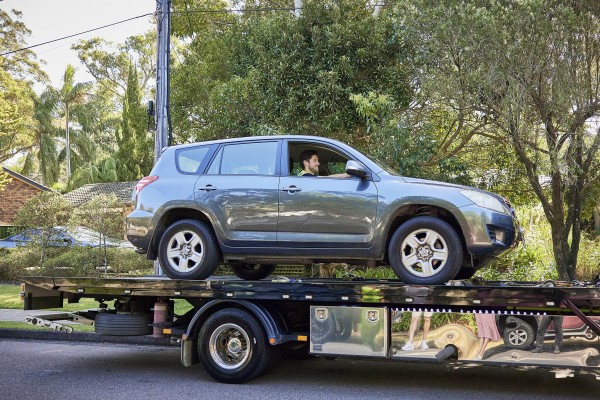
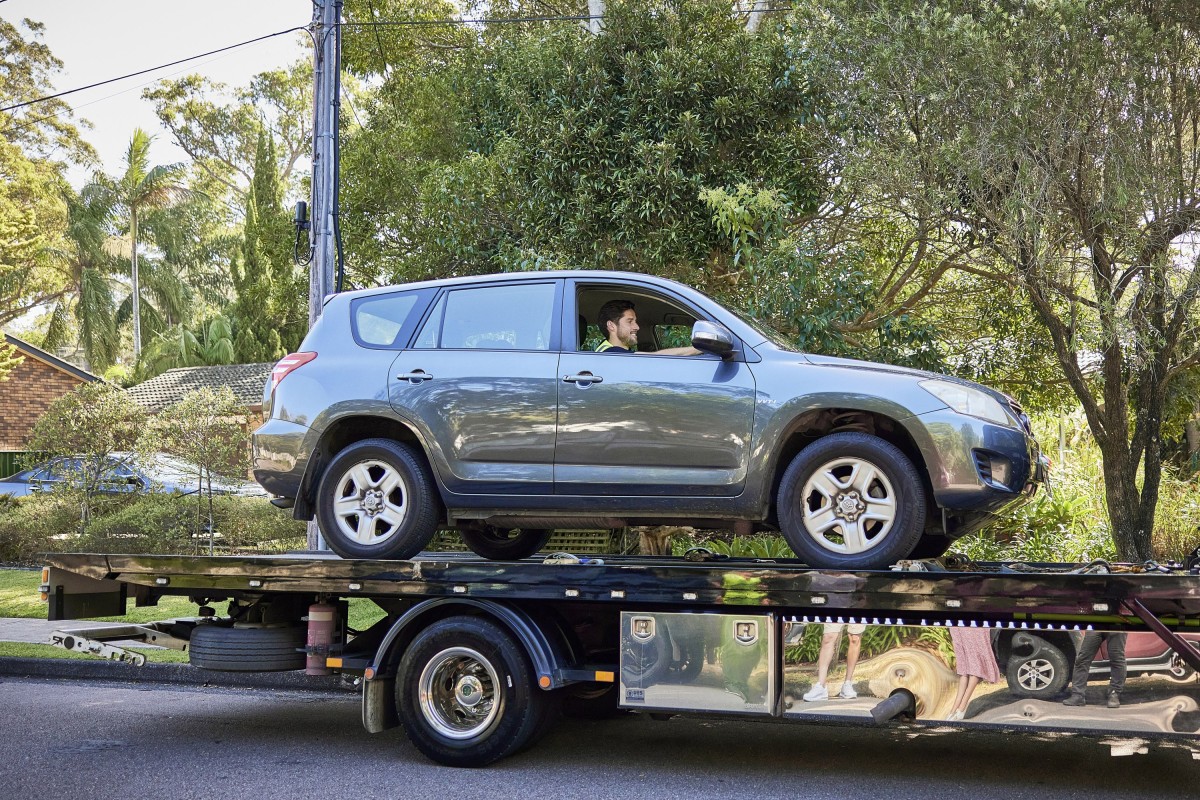
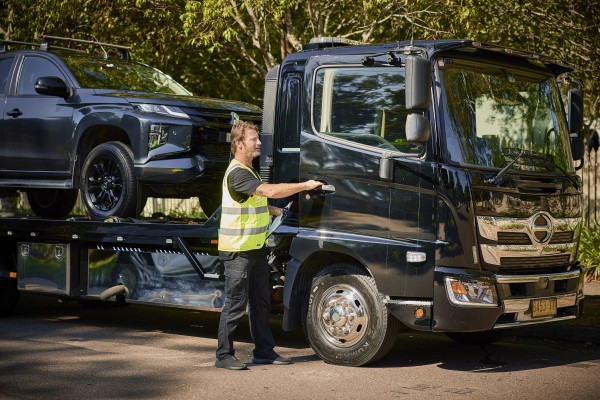
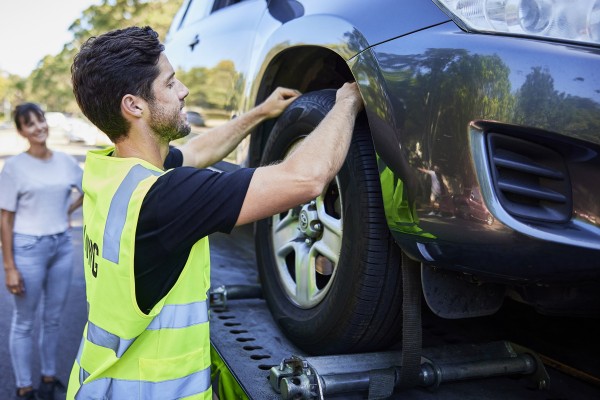
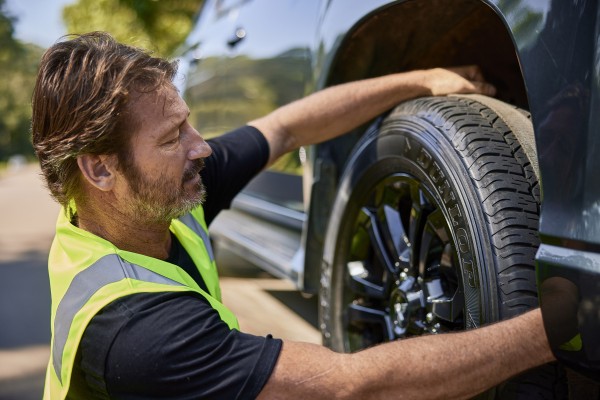
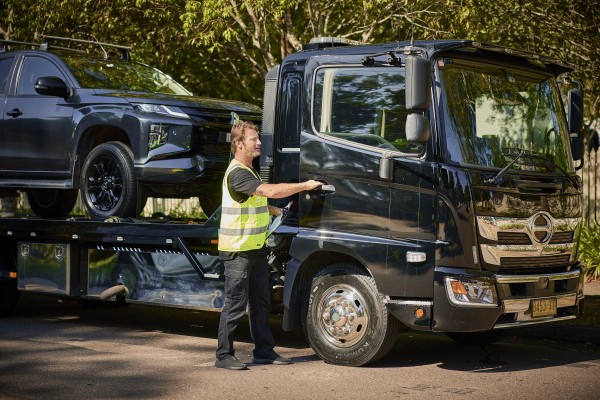
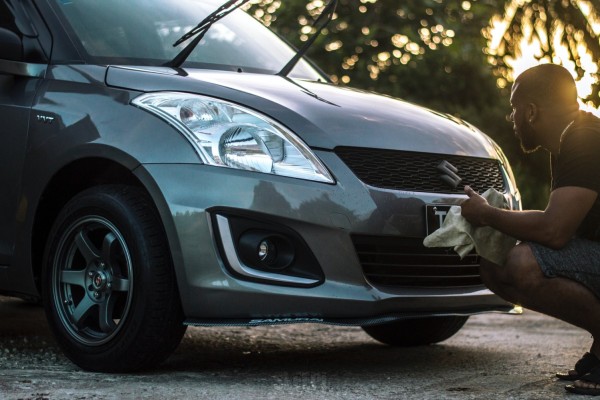
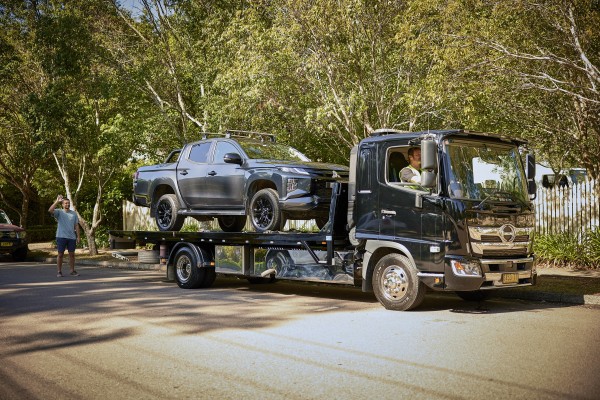

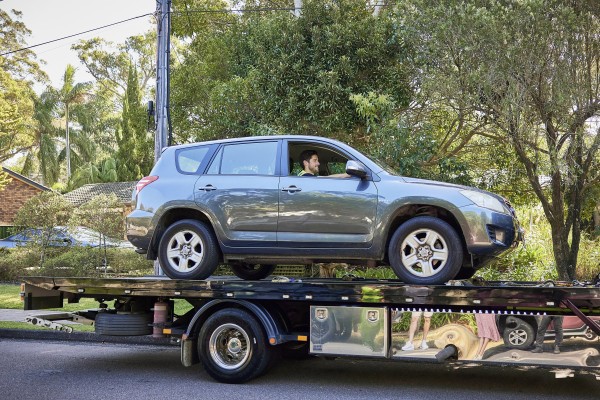
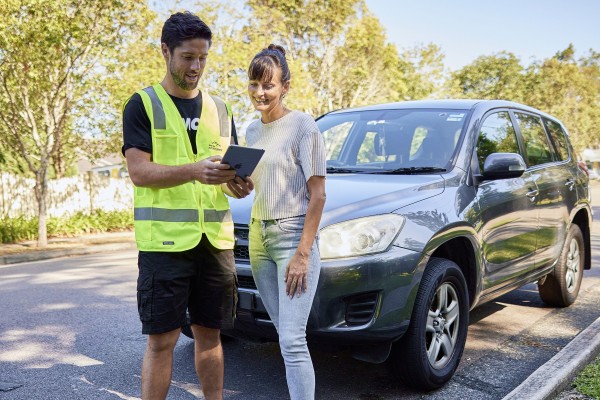
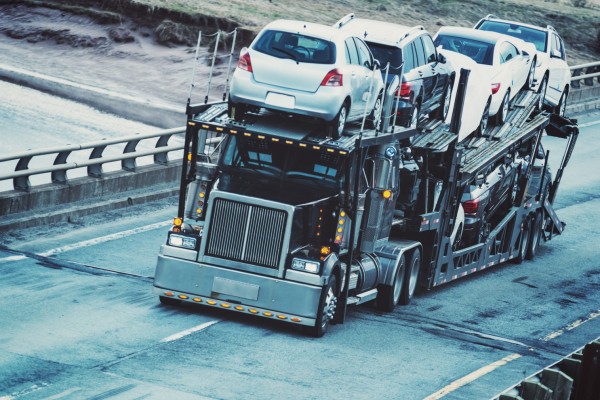
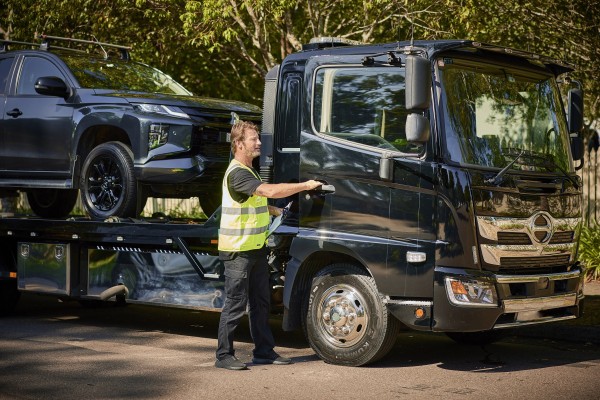
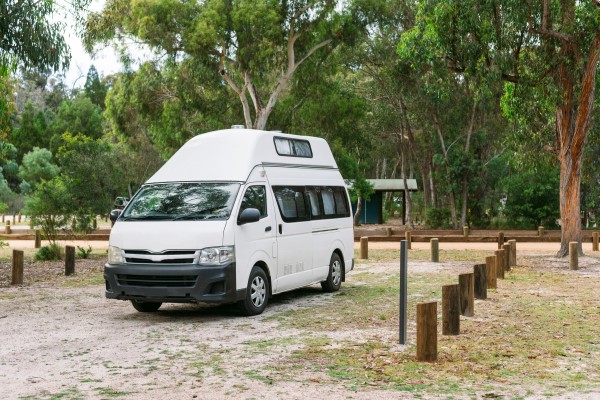
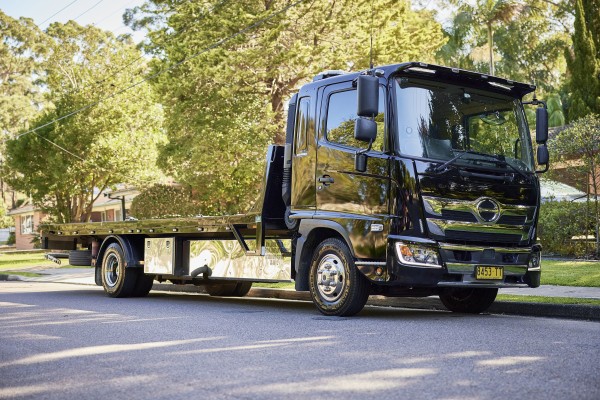
![Top Car Rental Companies Across Australia [Updated 2025] Top Car Rental Companies Across Australia [Updated 2025]](https://cdn.upmove.com.au/image/blog/8b764b76fe269172f532e099d0d1a327.jpeg)
